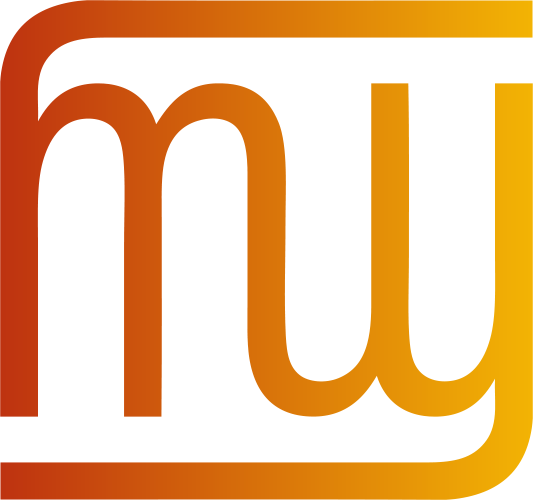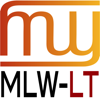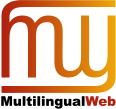 The W3C Internationalization (I18n) Activity works with W3C working groups and liaises with other organizations to ensure Web technologies work for everyone, regardless of their language, script, or culture.
The W3C Internationalization (I18n) Activity works with W3C working groups and liaises with other organizations to ensure Web technologies work for everyone, regardless of their language, script, or culture.
From this page you can find articles and other resources about Web internationalization, and information about the groups that make up the Activity.
Read also about opportunities to participate and fund work via the new Sponsorship Program.
What the W3C Internationalization Activity does
Selected quick links
Selected quick links
Selected quick links
ITS 2.0 showcase 18 June: participate in person or online. Get your seat soon!

The recently announced Internationalization Tag Set 2.0 showcase event in Dublin now allows for remote participation. Please register by 17 June 6 p.m. UTC. We will provide dial in details to registered
participants. The number of remote participants is limited and we choose on a first-come, first-served
basis – get your seat soon!
Come to the Internationalization Tag Set 2.0 Showcase

On 18 June the MultilingualWeb-LT Working Group holds a showcase event in Dublin about the upcoming Internationalization Tag Set (ITS) 2.0 specification. Group participants demonstrate implementations for authoring ITS 2.0 data categories, for using them in localization workflows, and for improving machine translation or other language technology processes with ITS 2.0. Participation is free, but registration is required.
Internationalization Tag Set (ITS) 2.0 Second Last Call Working Draft

The MultilingualWeb-LT Working Group has published a second Last Call working draft of Internationalization Tag Set (ITS) 2.0.
The draft implements all changes since the previous publication of 11 April 2013. There are no remaining open issues. The Working Group is planning to finalize ITS 2.0 now: this is your last time to provide feedback! The Last Call period ends 11 June.
ITS 2.0 provides metadata to foster the adoption of the multilingual Web.
Requirements for Hangul Text Layout and Typography Draft published
The Internationalization Working Group has published a First Public Working Draft of Requirements for Hangul Text Layout and Typography and is looking for feedback.
This document describes requirements for general Korean language/Hangul text layout and typography realized with technologies like CSS, SVG and XSL-FO. The document is mainly based on a project to develop the international standard for Korean text layout.
Please send comments to public-i18n-cjk@w3.org (subscribe, archives) by 14 June.
A Korean version of the document is also available (한국어 텍스트 레이아웃 및 타이포그래피를 위한 요구사항), but the English version is the authoritative version.
Rome MultilingualWeb workshop report now available

A report summarizing the MultilingualWeb workshop in Rome is now available from the MultilingualWeb site. It contains a summary of each session with links to presentation slides and more detailed scribing done on site in Rome. Links to video for each session will be posted soon.
With approximately 150 attendees, the Rome Workshop focused on the theme “Making the Multilingual Web Work” and emphasized information about the best practices and standards that help content creators and localizers ensure that the World-Wide Web lives up to its name, across boundaries of language and culture. Attendees heard from a variety of perspectives, with fruitful dialogue between various stakeholder groups involved in trying to expand the multilingual scope of the Web.
Taking place over two days (12 and 13 March, 2013) at the headquarters of the UN’s Food and Agriculture Organization (FAO), the Workshop featured twenty-four conference-style presentations, seven poster presentations, and an “open space” discussion that featured six breakout sessions focusing on key topics that emerged during the Workshop. In addition, it showcased technology implementations of the forthcoming internationalization Tag Set (ITS) 2.0 standard.
The Workshop was sponsored by the EU-funded QTLaunchPad project and Verisign. It was run by the MultilingualWeb-LT Working Group.
FEISGILLT 2013 to showcase upcoming ITS 2.0 standard
FEISGILLT 2013 will showcase the upcoming Internationalization Tag Set 2.0 standard, together with closely related, core localization standards like XLIFF. FEISGILTT 2013 is the preconference event of Localization World, London 2013. W3C members will get 20% discount for FEISGILTT. FEISGILTT participants are entitled to a 10% discount when registering for the main conference. However, registering for the main conference is NOT required to register for FEISGILTT.
New article: Unicode Bidirectional Algorithm basics
Unicode Bidirectional Algorithm basics is a repackaging of the initial part of “What you need to know about the bidi algorithm and inline markup” as a standalone article. It provides a gentle introduction to the behaviour of the Unicode Bidirectional Algorithm, and helps you understand why bidirectional text in Arabic, Hebrew, Thaana, Urdu, etc. behaves the way it does.
Deadline for participation in W3C Workshop on eBooks & Internationalization approaching!
The deadline for position papers is 30 April 2013. Please submit your (brief) position paper soon to ensure you have a place.
eBooks & i18n: Richer Internationalization for eBooks on 4 June 2013 in Tokyo, Japan, will investigate international requirements related to eBooks that needs to be added to the Open Web Platform. The Open Web Platform includes core W3C technologies such as HTML, CSS, SVG, XML, XSLT, XSL-FO, PNG, RDF, and many more, that are used extensively in eBooks and eBook production.
The goal is to make the various eBook reading platforms suitable for electronic books that use the printing and typesetting traditions of different cultures.
See the Call for Participation for details.
4 new articles about working with HTML markup in Arabic, Hebrew and Other Right-to-left Scripts
Creating HTML Pages in Arabic, Hebrew and Other Right-to-left Scripts
This tutorial has been modified to bring it in line with the current tutorial format. Rather than contain duplicate content, it now introduces the novice to key concepts and points off to useful further reading in an organized fashion. It has been completely rewritten.
Text direction and structural markup in HTML
This article has been created from material formerly in the tutorial “Creating HTML Pages in Arabic, Hebrew and Other Right-to-left Scripts” and augmented with information about new HTML5 markup constructs that are beginning to see adoption. It should be regarded as a new article, focusing on applying bidi markup to document- and block-level content, including forms.
What you need to know about the bidi algorithm and inline markup
This is an update of an existing article, but it has been almost completely rewritten. The most significant changes are the new parts describing how to apply the new HTML5 constructs which are beginning to see adoption. Additional changes will be needed as HTML5 bidi markup is finalised over the coming months. The article also proposes a simpler way to approach markup of bidi text, particularly useful for those with less experience, that relies less on a deep understanding of the issues involved.
Visual vs. logical ordering of text
This is a new article created from material that has been removed from the previously mentioned articles. It was removed into a separate article because visual ordering is much less important these days, and to avoid duplication. Only a few changes have been made to the content itself.
UTC Document Register Now Public
The Unicode Technical Committee (UTC) document register is now freely available for public access. This change has been made to increase public involvement in the ongoing deliberations of the UTC in its work developing and maintaining the Unicode Standard and other related standards and reports. Open access to the document register makes it easier to search both current and historical documents for topics of interest, using widely available search engines. The UTC document register contains online documents dating back to 1997 and online registers for paper document distributions dating back to 1991.